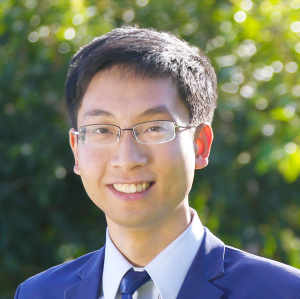Presented By: Complex Systems Advanced Academic Workshop (CSAAW)
CSAAW Seminar | Empirical social triad statistics can be explained with dyadic homophylic interactions
Tuan Pham Minh

The remarkable robustness of many social systems has been associated with a peculiar triangular structure in the underlying social networks. Triples of people that have three positive relations (e.g. friendship) between each other are strongly overrepresented. Triples with two negative (e.g. enmity) and one positive relation are also overrepresented, triples with one or three negative relations are drastically suppressed. For almost a century, the mechanism behind this very specific (``balanced'') triad statistics remains elusive. Here we propose a simple realistic adaptive network model where agents tend to minimize social tension that arises from dyadic interactions. Both, opinions of agents, and their signed links (positive or negative relations) are updated in the dynamics. The novelty of the model arises from the fact that agents only need information about their local neighbors in the network and do not require (often unrealistic) higher-order network information for their relation- and opinion updates. We demonstrate the quality of the model on detailed temporal relation-data of a society of thousands of players of a massive multiplayer online game where we can observe triangle formation directly. It not only successfully predicts the distribution of triangle types but also explains empirical group-size distributions, which are essential for social cohesion. We discuss the details of the phase diagrams behind the model, their parameter dependence, and comment to what extent the results might apply universally in societies.
Speaker bio
Tuan Pham is a PostDoc at the CSH since September 2021. He did his PhD at the Medical University of Vienna on Understanding collapse of social systems through co-evolutionary network dynamics. Tuan was previously trained in theoretical physics at the Ecole Normale Supérieure Paris. His research topics include: applications of random matrix theory, physics of disordered systems, social fragmentation, cultural conflicts, predictions of collapse and systemic risk in complex dynamical networks, stochastic thermodynamics, noise-induced phase transitions and anomalous diffusion in stochastic systems.
Speaker bio
Tuan Pham is a PostDoc at the CSH since September 2021. He did his PhD at the Medical University of Vienna on Understanding collapse of social systems through co-evolutionary network dynamics. Tuan was previously trained in theoretical physics at the Ecole Normale Supérieure Paris. His research topics include: applications of random matrix theory, physics of disordered systems, social fragmentation, cultural conflicts, predictions of collapse and systemic risk in complex dynamical networks, stochastic thermodynamics, noise-induced phase transitions and anomalous diffusion in stochastic systems.